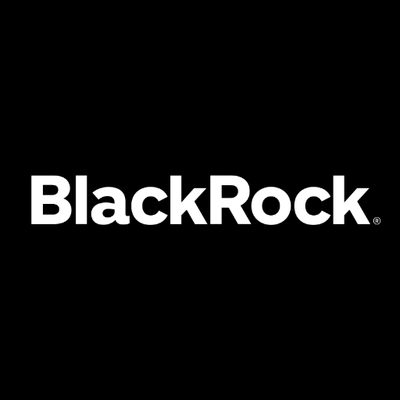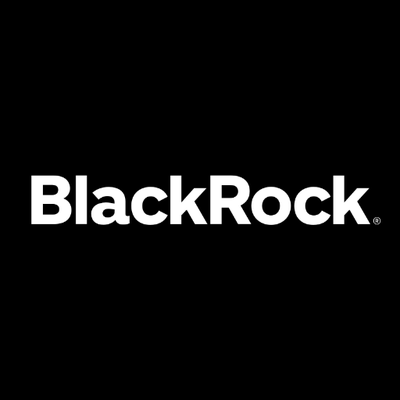BlackRock Greater Europe Investment Trust plc (LON:BRGE) has announced its latest portfolio update.
All information is at 31 May 2023 and unaudited.
To discover more about the BlackRock Greater Europe Investment Trust click here
Performance at month end with net income reinvested
| One Month | Three Months | One Year | Three Years | Launch (20 Sep 04) | |
| Net asset value (undiluted) | 0.9% | 3.2% | 15.0% | 43.4% | 677.9% |
| Share price | 0.3% | 2.6% | 17.1% | 40.5% | 645.0% |
| FTSE World Europe ex UK | -4.0% | -0.9% | 8.5% | 35.4% | 375.5% |
Sources: BlackRock and Datastream
At month end
| Net asset value (capital only): | 560.30p |
| Net asset value (including income): | 565.14p |
| Share price: | 535.00p |
| Discount to NAV (including income): | 5.3% |
| Net gearing: | 6.1% |
| Net yield1: | 1.2% |
| Total assets (including income): | £570.8m |
| Ordinary shares in issue2: | 101,000,161 |
| Ongoing charges3: | 0.98% |
1 Based on a final dividend of 4.85p per share for the year ended 31 August 2022 and an interim dividend of 1.75p per share for the year ending 31 August 2023.
2 Excluding 16,928,777 shares held in treasury.
3 The Company’s ongoing charges are calculated as a percentage of average daily net assets and using the management fee and all other operating expenses excluding finance costs, direct transaction costs, custody transaction charges, VAT recovered, taxation, write back of prior year expenses and certain non-recurring items for the year ended 31 August 2022.
| Top 10 holdings | Country | Fund % |
| Novo Nordisk | Denmark | 8.9 |
| LVMH Moët Hennessy | France | 7.5 |
| ASML | Netherlands | 7.3 |
| RELX | United Kingdom | 5.2 |
| Lonza Group | Switzerland | 4.9 |
| DSV Panalpina | Denmark | 4.5 |
| Hermès International | France | 4.2 |
| BE Semiconductor | Netherlands | 3.8 |
| STMicroelectronics | Switzerland | 3.8 |
| Sika | Switzerland | 3.2 |
Commenting on the markets, Stefan Gries, representing the Investment Manager noted:
During the month, the Company’s NAV rose by 0.9% and the share price by 0.3%. For reference, the FTSE World Europe ex UK Index returned -4.0% during the period.
Europe ex UK markets were down during May, reflecting concerns over the US debt ceiling negotiations, whilst also having to digest mixed economic data.
Within the tech world, news from US based Nvidia took markets by surprise as the company is seeing ‘surging demand’ for its data centre products used in generative artificial intelligence (AI) and upgraded their current quarter revenue forecast to 50% above consensus estimates. AI and chip related stocks saw strong performance during the month. On the back of the news, the IT sector rallied during the month whilst all other sectors delivered negative returns, reflecting an overall risk-off sentiment.
The Company strongly outperformed its reference index during the month, driven by both positive sector allocation and stock selection. In sector terms, the Company’s higher exposure to IT, particularly the semiconductor industry, was beneficial. A lower allocation to consumer staples, energy, telecoms and utilities also aided relative returns. The Company’s overweight allocation to consumer discretionary was negative.
The portfolio’s exposure to the semiconductor industry was the largest contributor to relative returns. Our holdings in BE Semi, ASMi and ASML were the top three performers, while STMicroelectronics was also amongst the strongest performers. As described above, the industry saw strong share price gains on the back of the Nvidia update. To meet the demands of emerging AI technologies, semiconductor chips will have to become smarter and more powerful. A number of Europe’s Wafer Fab Equipment (WFE) companies have a key role to play here.
Lonza also added to relative returns after giving a positive qualitative update. We were pleased to see the company provide this first update, coming between the usual half year annual reporting, to increase investor communication throughout the year. Key to the update, the company said the biologics division saw sustained customer demand for commercial supply. They also confirmed growth projects are progressing in line with plans and reiterated their FY 2023 outlook for high single digit sales growth and core EBITDA margin between 30-31%.
DSV was a positive contributor with shares continuing to move higher on the back of their Q1 earnings update at the end of April that showed yields are staying stronger for longer.
Our large weight in LVMH was the largest detractor. Spots of weaker China data – which are unrelated to luxury – seem to have driven some profit taking in the stock. We saw brokers pushing a more general view on China weakness and highlighting that luxury was the place that had benefited the most up to now. There were also some jitters on a new Covid variant in the country. While consumption of luxury within China may be losing a bit of steam from the initial restart, companies such as LVMH are seeing strength coming through in ‘offshore’ spending in places such as Hong Kong and Macau.
Not owning large reference index constituents Roche, Siemens and SAP hurt relative performance.
Outlook
European equities have significantly outperformed other regions over the last six months, as the outlook for Europe has materially improved. The domestic energy crisis has been de-risked with prices down and storage levels high, and as one of the largest exporters to China, many European companies stand to benefit from the country’s ongoing re-opening. On the broader European financial system, despite recent volatility owing to concerns around US regional banks and the forced merger of UBS and Credit Suisse, there have been assurances from central bankers and regulators on the sector’s financial health, helping to restore some confidence.
Despite year-to-date gains, the set up for the European equity market remains favourable relative to developed market peers such as the US and European equities are still under-owned and valuations remain attractive.
Whilst there are a number of unknowns from a macroeconomic perspective, we see opportunities for attractive returns in select areas. Corporate balance sheets are in decent shape and in much better positions than in previous downturns. Many companies in Europe have spent the last decade deleveraging balance sheets and interest coverage is significantly higher than during the Global Financial Crisis or other prior periods associated with deep recessions or prolonged bear markets. Corporate spending intentions also remain healthy and this spend is often linked to transformational capex.
Lastly, long-term structural trends and large amounts of fiscal spending via the Recovery Fund, Green Deal and the REPowerEU plan in Europe can drive demand for years to come, for example in areas such as infrastructure, automation, innovation in medicines, the shift to electric vehicles, digitization or decarbonisation. We believe the portfolio is well aligned to many of these structural spending streams.
To discover more about the BlackRock Greater Europe Investment Trust click here






































